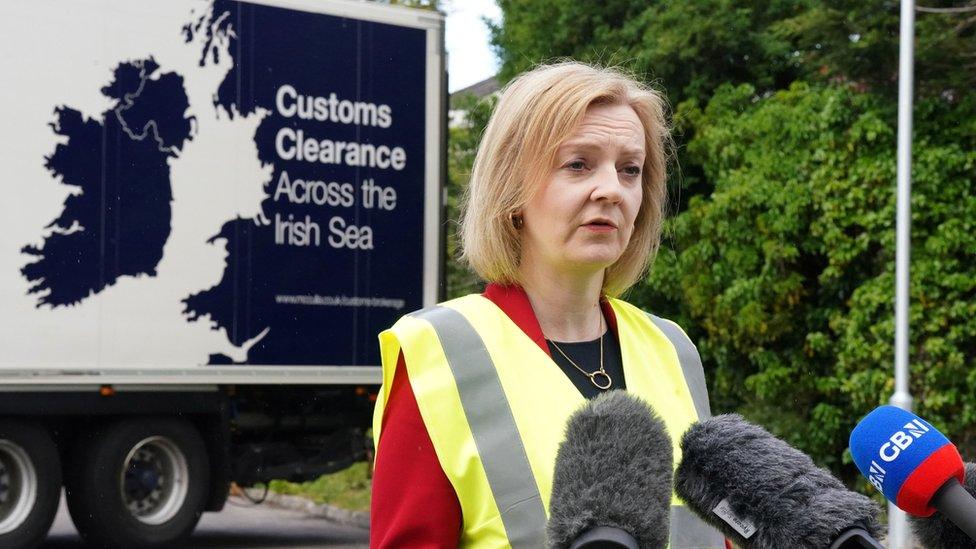Liz Truss: New PM's past and future dealings with Northern Ireland
- Published
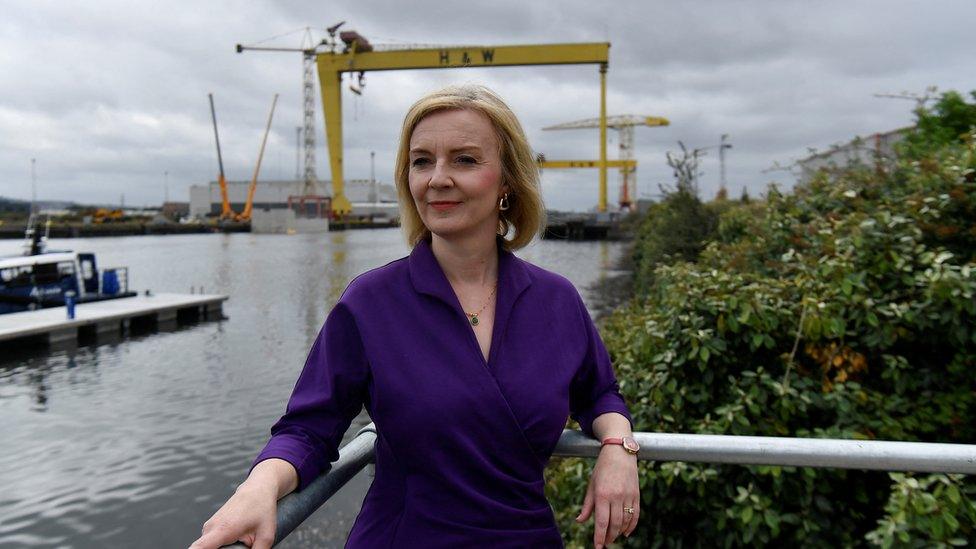
Liz Truss visited Belfast during the Conservative Party leadership contest last month
May 2016, and a lesser-known Liz Truss was at Northern Ireland's Balmoral Show, arguing that the UK is stronger staying in the EU.
During the referendum campaign, the then environment secretary was no fan of Vote Leave.
Explaining her decision at the time, she said: "I don't want us to spend years in a messy divorce from Europe, not focusing on what's really important."
Fast forward six years and the fallout from a messy divorce is just what the new prime minister now finds herself caught up in.
Much has changed since the referendum, not least her own stance on Brexit, resulting in a remarkable reincarnation as the UK's negotiator going toe-to-toe with Brussels over the Northern Ireland Protocol.
Appointed to that role in December 2021 after Lord Frost - who had helped draw up the original deal - resigned, she quickly set about holding discussions with her EU counterpart, Maros Sefcovic.
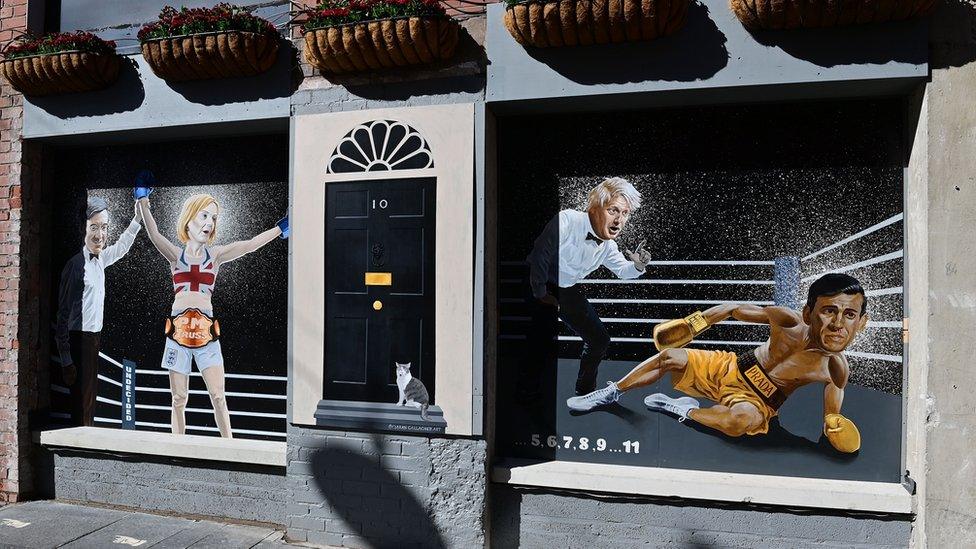
A mural was unveiled in Belfast shortly before Liz Truss was named as the next prime minister
A trip to Northern Ireland soon followed, with Ms Truss committing to more talks, but no quick fixes that would keep the Democratic Unionist Party (DUP) from walking out of the institutions at Stormont.
A week later, DUP leader Sir Jeffrey Donaldson said he could no longer wait for the UK to act and withdrew his party from devolved government, insisting the protocol had to be scrapped or altered significantly.
Several months later, Ms Truss, in her role as foreign secretary, courted controversy when she set in motion plans to override the original deal on the protocol through legislation at Westminster.
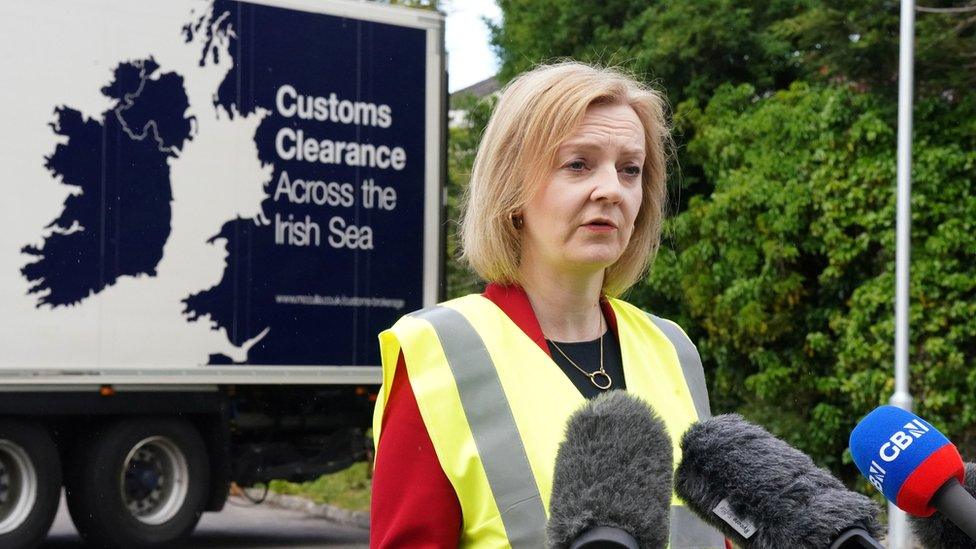
As foreign secretary, Liz Truss visited County Antrim businesses in May 2022
The protocol bill would give UK ministers powers to do away with parts of the protocol - a move welcomed by unionists, who argued that the protocol was weakening Northern Ireland's place in the union.
But it was condemned by critics as a breach of international law and a bid to renege on previous commitments to the EU, with some also suggesting it was a political tactic to shore up Ms Truss's own political future.
At the time she insisted her priority was restoring power-sharing at Stormont, and that the protocol bill would help achieve that.
The legislation passed through the House of Commons without much opposition, but it will now face a tougher fight in the House of Lords.
And the EU has repeatedly warned that continuing down this track will damage any prospect of future negotiations.
Talks with the EU since that process began have largely been at a standstill.
On Friday, Mr Sefcovic said the EU would "never leave the table" and would work with the new prime minister to find a solution.
But in Brussels, there is little optimism that things are about to shift with Liz Truss now in the top job.

A new mural was painted in Belfast last month depicting Liz Truss and leadership rival Rishi Sunak
Fabien Zuleeg is chief executive of the European Policy Centre, a think-tank on EU affairs.
"She has shown that she's not willing to negotiate because there are proposals on the table," he said.
"There may be the argument on the UK's side that they don't go far enough, but unless you've tried to implement them, I think that's a very empty phrase to use.
"In the end I think this is about scoring points and has very little to do with the realities in Northern Ireland - it is about the Conservative Party."
Not so long ago, Ms Truss's predecessor Boris Johnson was hosting the taoiseach (Irish PM) at Hillsborough Castle, but their respective positions on the protocol have pushed Anglo-Irish relations apart.
In June, the Irish foreign minister, Simon Coveney, also accused Ms Truss of deliberately ratcheting up tensions - so is a further decline in relations inevitable?
Bobby McDonagh was the Republic of Ireland's ambassador to the UK between 2009 and 2013.
He said the Irish government would hope for a "change in tone" from Number 10's new occupant.
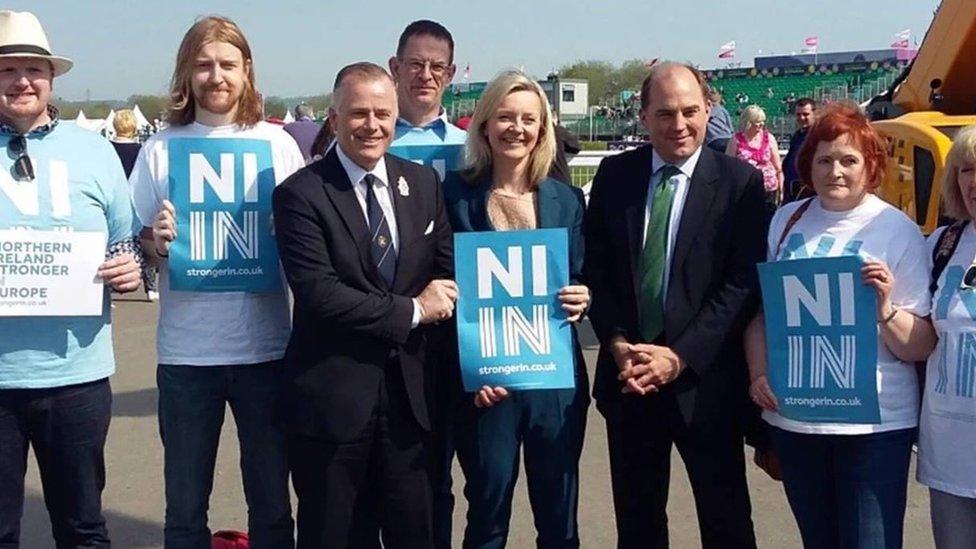
"In other words that there will not be aggressive criticism of the EU that we've seen to play up to the European Research Group (ERG)," he said.
"Any insults or hostility to our partners is an insult to us - the Irish government is up for a change in mood, but it will require certain things to happen."
He added: "If the question were put as to whether the British prime minister were a friend or a foe, I don't think the Irish government would have any difficulty in saying the prime minister is a friend.
"But the question is whether the relationship can return to the warmth that characterised it for so long and arose from our shared membership of the EU and joint work on the peace process over many years.
"On that, the ball is very much in the new prime minister's court."
Political parties at Stormont will say the ball is also in Liz Truss's court when it comes to many other Northern Ireland issues.
They will not be shy of saying so when she makes her first visit to Northern Ireland as prime minister, which could be very soon.
Related topics
- Published5 September 2022
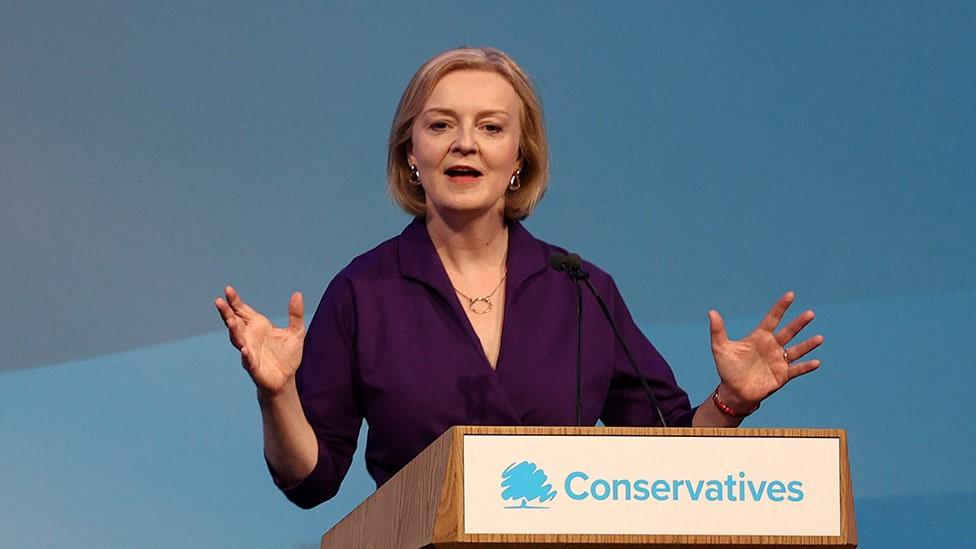
- Published17 August 2022
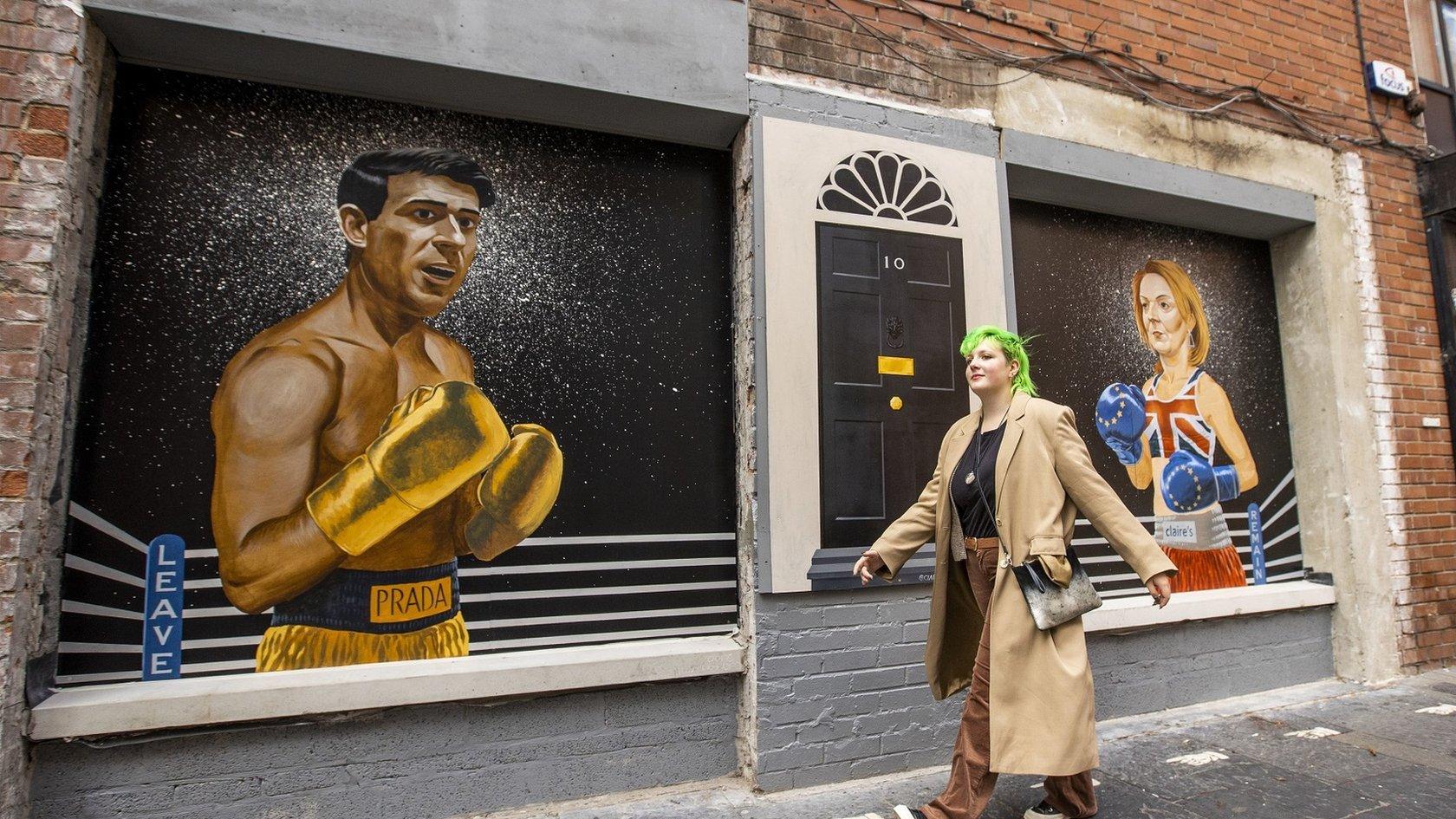
- Published25 May 2022
